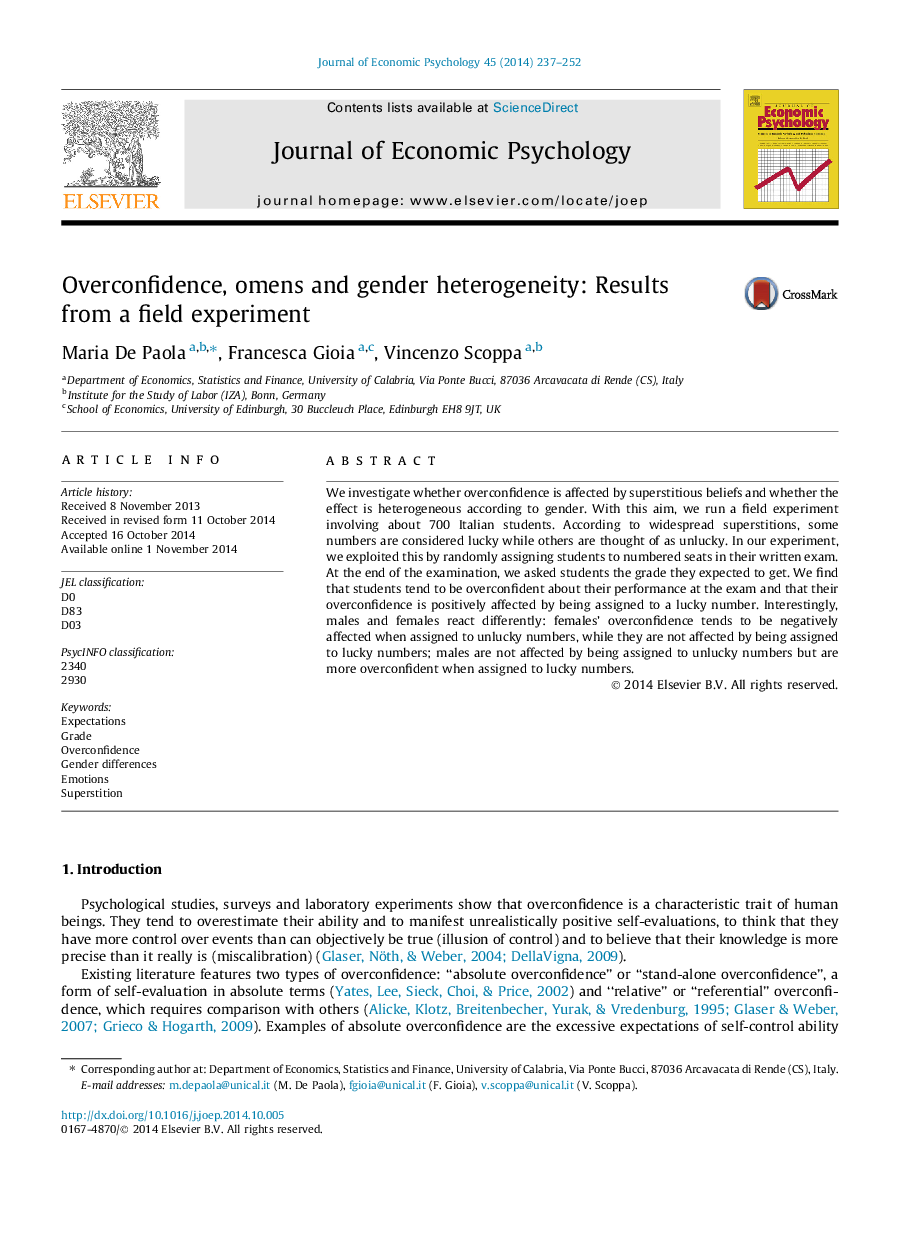| Article ID | Journal | Published Year | Pages | File Type |
|---|---|---|---|---|
| 884943 | Journal of Economic Psychology | 2014 | 16 Pages |
•We run an experiment to investigate whether overconfidence is affected by superstition.•We find heterogeneous effects according to gender.•Females are affected exclusively by unlucky numbers.•Males react to lucky numbers, but they do not react to unlucky numbers.
We investigate whether overconfidence is affected by superstitious beliefs and whether the effect is heterogeneous according to gender. With this aim, we run a field experiment involving about 700 Italian students. According to widespread superstitions, some numbers are considered lucky while others are thought of as unlucky. In our experiment, we exploited this by randomly assigning students to numbered seats in their written exam. At the end of the examination, we asked students the grade they expected to get. We find that students tend to be overconfident about their performance at the exam and that their overconfidence is positively affected by being assigned to a lucky number. Interestingly, males and females react differently: females’ overconfidence tends to be negatively affected when assigned to unlucky numbers, while they are not affected by being assigned to lucky numbers; males are not affected by being assigned to unlucky numbers but are more overconfident when assigned to lucky numbers.
